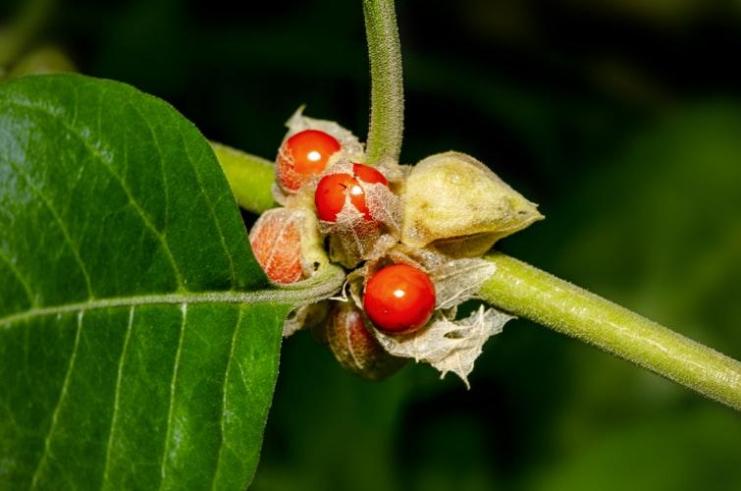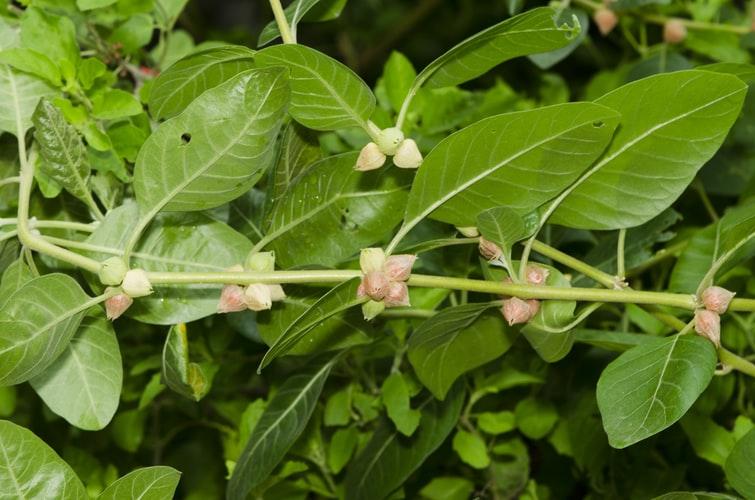You have probably heard of the well-known traditional medicinal practice called Ayurveda. It’s a practice that is based on the principle of the body’s natural self-healing power. Using certain herbs, it helps the human body heal itself, thus supporting your overall health and wellbeing.
One of the most used and most important herbs of Ayurveda is Ashwagandha. It’s a bush with red berries that grows in India, the Middle East and parts of Africa. It’s used as a medicinal plant due to its amazing properties. As a matter of fact, it has been used in the Ayurvedic practice for 3000 years. Plenty of people around the globe use it to improve their health. And, if you also consider using this herb, here’s everything you need to know about it.
What Is Ashwagandha?
Speaking from a medicinal perspective, ashwagandha is an adaptogen. Adaptogens are powerful herb and plant medicines that support different parts of the body. As the name itself suggests, adaptogens help the body adapt to certain situations, thus supporting balance in various systems of the body. As it’s known, it helps the body adapt to stress and supports the cardiovascular system, immune system, nervous system, and endocrine system. This is because the root of this plant contains compounds that are bioactive, such as alkaloids, steroidal lactones, withaferins, withanolide glycosides, saponins, and similar.
What Does the Name “Ashwagandha” Mean?
This is a really interesting question since it’s an Indian word and many of us don’t understand it. In Indian, it means “odor of the horse” because its roots have a bad smell. Also, it is associated with a horse because the person who uses it gains a lot of stamina and strength, just like a horse.
What Does It Look Like?
Ashwagandha is a bush with green leaves and red berries. What you need to know regarding its parts is that the berries it produces look like cherries and tomatillos. They belong to the family of Solanaceae (nightshades). Therefore, if you are allergic to veggies like tomatoes, peppers, or eggplants, you might also be allergic to this plant.
Copyright: Unsplash / author: rochangraphics / I License: CC0 Public Domain
What Are Its Health Benefits?
In Ayurveda, this plant is referred to as Rasayana – a plant for vitality, longevity, and happiness. It’s given to people with certain health conditions to improve their health but also to healthy people to support their wellbeing. As it’s known, Ashwagandha can help with various health conditions, including:
-
Stress and anxiety – Ashwagandha can help reduce the levels of cortisol, the stress hormone. Although it is normal to have increased cortisol levels in certain situations, such as mornings, having too increased levels makes you feel anxious and stressed out which can consequently lead to things like high blood pressure or worse. Therefore, by reducing and maintaining healthy cortisol levels, ashwagandha helps cope with stress and anxiety.
-
Heart health – It has been found that ashwagandha supports a healthy heart. It’s because it helps lower high blood sugar levels, cholesterol, and triglyceride levels. In that way, it protects your heart from a heart attack and developing heart disease.
-
Nervous system and brain function problems – Ashwagandha can support your nervous system and brain health by supporting the function and structure of the nervous system and brain function. It may also improve memory and other cognitive processes that are caused by neurodegenerative diseases such as Alzheimer’s, epilepsy, Parkinson’s, and Huntington’s.
-
Immune system – This plant may improve your immune system by reducing inflammation caused by bacteria or viruses. It also boosts the ability of immune cells to fight infections.
-
Physical strength and muscle mass – Ashwagandha can make men stronger by increasing their muscle mass and body composition. It also supports muscle recovery, promotes healthy levels of creatinine kinase, thus reducing their damage.
-
Joints – This plant can also support joint health by ensuring a healthy inflammatory response. As it was found, ashwagandha can reduce the levels of C-reactive protein, thus reducing inflammation. In that way, it relieves joint stiffness, pain, discomfort, and swelling.
-
Fitness – apart from making you stronger, ashwagandha can also positively affect your metabolism. Due to having an anabolic action, it supports healthy weight and weight gain during the growth phase. That’s why in the countries where Ayurveda is practiced, children are given ashwagandha-fortified milk. Apart from supporting healthy body development and weight, it also supports healthy hemoglobin levels and total plasma proteins. And, it might support healthy blood lipid levels and fat oxidation.
How Is Ashwagandha Consumed?
Since you cannot eat the branches and leaves fresh, companies have produced various ashwagandha products. Namely, you can find ashwagandha tea, capsules, powder, and root extract. However, you should always consult with your doctor before taking any of these products. It’s because in certain situations, such as when pregnant, breastfeeding, or taking other medications, consuming this plant is forbidden.


